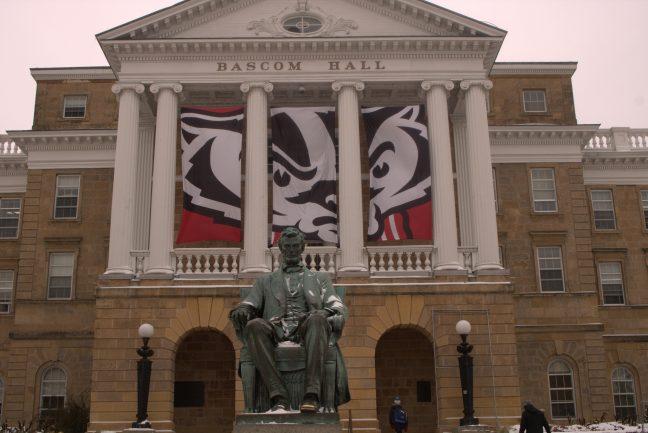University of Wisconsin Chancellor Rebecca Blank released a statement Wednesday afternoon about racial inequalities on the UW campus.
In the past month, since the murder of George Floyd and the ensuing Black Lives Matter protests, students across campus have called for more effort by UW to make the campus a more welcoming space for Black students and other students of color.
A circulating petition backed by organizations including the Black Student Union called for the removal of the Abe Lincoln statue on Bascom Hill, because of Lincoln’s history of discrimination against Indigenous people and because of the statue’s donors, one of whom was a Ku Klux Klan member. BSU also called for the removal of the Chamberlin Rock on Observatory Drive because of its racist history.
Many student-athletes of color at UW have called for better treatment in a petition, citing a lack of representation and support.
A recently created Instagram account called @bipocatwisco gave a platform for Black, indigenous and POC students to discuss racism they’ve experienced on campus, calling on the administration to make structural change.
Others have taken to social media to call for everything from more representation for BIPOC on campus, more Black faculty and for UW to cut ties with Badger State Industries, a Prison Industries Act program that provides UW with supplies made with prison labor.
In Blank’s statement, she cited a few existing diversity initiatives, including the semesterly Diversity Forum and the Target of Opportunity Support program, which recruits faculty of color, as well as implicit bias programs they offer on campus.
Blank said, however, she realizes these existing initiatives aren’t enough.
“Our Black students, faculty and staff have consistently shared the discomfort they experience negotiating spaces on campus that are defined by white culture, and about the regular stream of microaggressions they experience — comments and behaviors that show misunderstanding (at best) and hostility and disrespect (at worst),” Blank said.
Blank said UW will increase their recruiting efforts in communities of color and they will continue to use the TOP program to recruit more faculty of color. All search committees in all schools and colleges will now have to undergo implicit bias training as well.
When it comes to acknowledging the campus’ problematic history, Blank said UW will continue its public history project, which began two years ago, though COVID-19’s closure of University Archives has stalled it. Part of this program, Blank said, is confronting an “uncomfortable” history of oppression and marginalization.
Blank said the University of Wisconsin Police Department will start a Racial Equity Initiative to demonstrate a commitment to protecting all communities and adopt “a comprehensive action plan for identifying, adopting and continually assessing needed changes within the department.”
For education and student support, Blank said UW will make an implicit bias online training called “Our Wisconsin” mandatory for all incoming freshmen. They’re also going to create an Office of Inclusive Education within Student Affairs to help educate all students on topics of race and marginalization.
Blank said UW will offer more professional training opportunities for graduate students in these areas. UW will also start an Exceptional Service Support award for faculty of color who serve as mentors for BIPOC students as they work through traumatic events. This award will provide release time from teaching for the awardees.
Blank also said they will invest more in research about topics pertaining to race and the impacts of racism, and modify tenure guidelines to consider faculty activities in community-based scholarship and activities related to diversity and inclusion as noteworthy for promotion.
Blank said these aren’t all the actions they plan to take, and they’re still working on others. But she also said change is slow, and these things can’t happen overnight.
“Change is made even more difficult by the fact that our community is constantly being recreated,” Blank said. “Each year about 10,000 of our students leave and another 10,000 new students arrive. Hence there are always large numbers of new people arriving on campus and we must engage with them afresh. All of this means our work will never be complete. We have to marshal the will and the persistence to embed these efforts into the fabric of the institution.”


